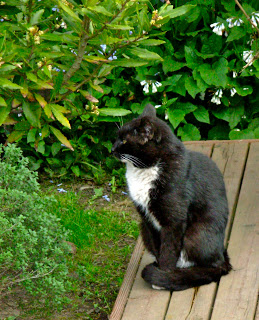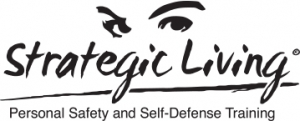Self Defense Essentials I Learned from My Cat, Lesson #2
Yesterday we had to have one of our feral kitties euthanized.
Unknown to us, Survivor had feline leukemia. We did notice the past 2 weeks he was more friendly (for a feral). Then he didn’t show up for his usual feedings for about 5 days. Sunday Survivor reappeared, and this usually skinny kitty had a clearly bloated abdomen. He was surprisingly easy to capture and kennel that night, and we got him to the vet the next day. That’s when we found out about the feline leukemia, but that wasn’t causing the bloating.
We never did find out the exact cause of the bloating. Our vet said we could, if we wanted, do X-rays and a few other tests, but they would almost certainly not give us a diagnosis that would prove curable. Survivor’s days were clearly numbered, regardless of what we did.
 |
| Survivor, a feral cat we fed for 8 years. |
We were surprised at the speed of Survivor’s decline. He went from an apparently healthy middle-aged feral to the threshold of his next life within the span of weeks. Our vet was not surprised.
“Cats in the wild try to hide signs of weakness or illness. That would mark them as vulnerable, and they’d quickly become prey to other critters, like raccoons, dogs, or coyotes. So by the time you see symptoms, they are already at a late stage of illness.”
There are indeed many, many differences between us humans and feral cats in my back yard. But there still are universal laws of nature, and Survivor’s predicament illustrates a fundamental one. Predators most often go after the old, the young, the weak, the ill. Not only in the great outdoors, but among us civilized apes.
Who among us are at higher risk? Basically, the same groups. Often those most dependent on others for care. Think elder abuse. Consider that almost thirty percent of sexual assault in Washington state happens to children under the age of 12. And a large percent of assault involves alcohol and/or drugs (which impair a person’s abilities to recognize danger as well as fight back).
How often do you assess your vulnerabilities? Do you think about ways you can reduce risk to yourself and your loved ones? Do you know what it takes to keep the raccoons, dogs and coyotes at bay?
